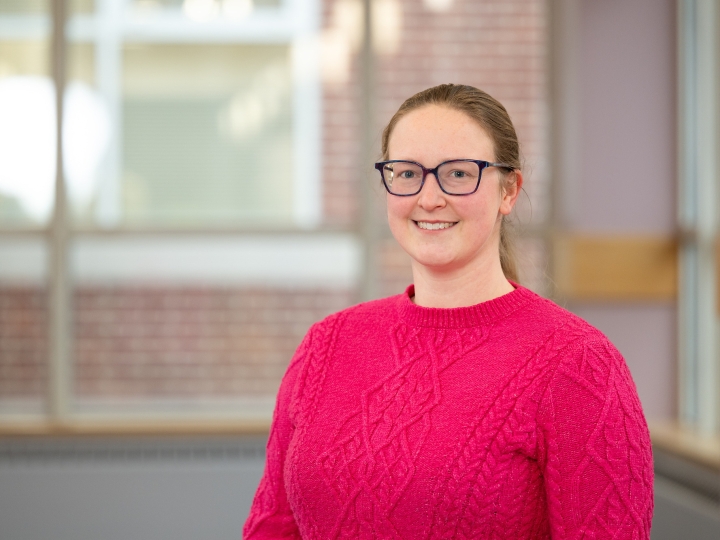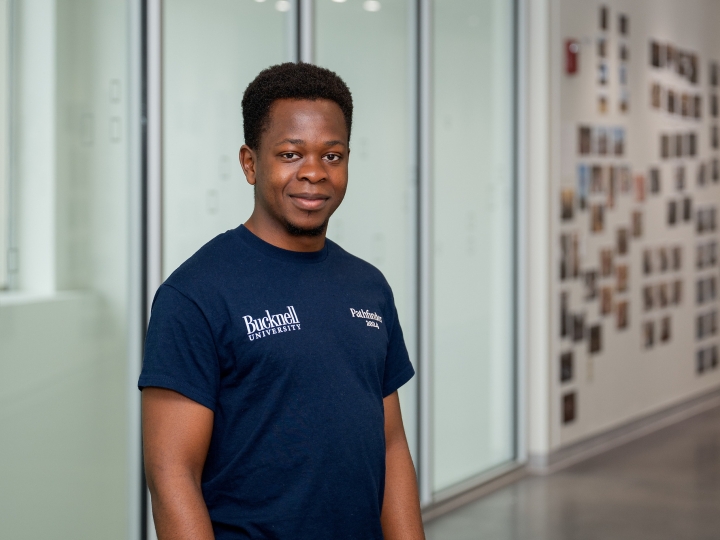A Gay Scientist’s Story
August 11, 2016
Though he'd been "out" since high school, Bucknell University postdoctoral researcher Jason Cantley didn't typically make his sexual orientation part of his professional life. He wasn't hiding anything, but he didn't make a point of bringing it up either.
That changed in the wake of the mass shooting in Orlando, Fla., June 12. Partly as a way to process his own shock and partly to provide comfort to others coping with the same complex emotions, Cantley, who works with biology professor Chris Martine, decided to open up about his identity as a gay scientist.
He began with a Facebook post, composed within 24 hours of the tragedy, but this month, he's sharing his story with a much broader audience, in the pages of one of the world's oldest and most highly regarded scientific journals.
Cantley's essay "Working My Way Out" appears in the Aug. 5 issue of Science. It's the feature essay of the journal's "Working Life" section, which shares first-person career anecdotes written by professional scientists.
Cantley said he was inspired to reach out to a larger audience after receiving positive feedback and support about his Facebook post from some in his social network, including Bucknell colleagues. He considered submitting an essay to The Huffington Post, where his mentor had published blog posts in the past, but decided to contact Science because it offered a more personal platform where he could more directly reach those in his field, especially those who identify as LGBTQ.
"There are a lot of opportunities for students to have safe spaces in science, but many still leave science feeling that they don't belong," Cantley said. "I didn't write this to pressure people to come out, but as a case study for how I've handled it. If it reaches one person, I will be incredibly grateful and happy this piece was published."
Cantley, who began working at Bucknell last year, said he often felt he was living separate lives throughout his education and career — one where he was out, and one where he censored himself in the workplace so that people wouldn't know his sexual orientation.
"My worry was that if people knew I was gay, they would judge my science with less credibility than someone who was straight," Cantley said. "Saying that out loud now, it sounds ridiculous, but it took a long time for me to understand: that's what I was doing."
At Bucknell, Cantley mentors undergraduate student researchers in Martine's lab, helps to manage Martine's research, oversees the Burpee and Rooke greenhouses and conducts his own research on the biodiversity of relatives of the coffee plant that are native to Hawaii. He felt comfortable taking the job, he said, in part because he had become social media friends with Martine after meeting him at a conference several years earlier.
"He could see that I was dating someone, that I posted about pride events — it was easy to see that I was gay," Cantley said. "I thought, 'if I go work with Chris as a postdoc, he's cool with it. He may not talk about it, but I know by virtue of him hiring me that he's comfortable with it, and that he thinks my science is relevant and my sexual orientation doesn't come into play.' "
While Cantley wasn't as forthcoming with his other colleagues, he's decided to embrace his sexual orientation in his career, and has already received positive feedback from others in his department.
"I've decided I need to stop this unhealthy worrying," he writes in his Science essay. "The tragedy in Orlando reminded me that life is too precious to let these negative patterns of thinking generate destructive consequences in my professional life. I feel no reason to hide or feel ashamed for being gay while doing science. I'm still concerned about how to manage the coming-out process for my next career step, but I am confident that my work is valid and will speak for itself."
Shortly before his essay appeared in Science, Cantley won the Margaret Menzel Award for best genetics paper at the internationally attended Botanical Society of America 2016 conference in Savannah, Ga.
Read Cantley's essay here.

